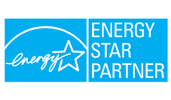Builders receive incentive for building Energy Star homes.
An Energy Star home is at least 15 percent more energy-efficient than a conventional house built to code standards. Such a home could save $300 a year in energy costs and carry a higher resale value. But because Energy Star Homes can cost $3,000 extra to construct and certify, they are not widely accepted in this state. Only 4.3 percent of new homes built last year in North Carolina were Energy Star, less than half the national average.
Certifying an Energy Star home costs between $500 and $900 and requires one plan review and two inspections, said Dan McFarland, director of building services for Southern Energy Management. The Morrisville company performed 1,100 Energy Star home certifications last year and has done more than 1,800 this year. Progress Energy hopes incentives will boost conservation by taking the financial bite out of the up-front investment. It remains to be seen if a $400 bonus will convince a builder to upgrade a home with unseen enhancements — duct-sealing and tighter insulation — versus those with eye appeal — fancy counter tops and bathroom fixtures. “I don’t think it’ll make a sea change,” McFarland said. “Hopefully, this will be an extra incentive for those sitting on the sidelines.” Raleigh-based Progress is promoting Energy Star homes to comply with a state conservation law. As part of a broad approach, the electric utility also plans to offer customer incentives for buying energy-efficient appliances and taking other conservation measures. The N.C. Utilities Commission must sign off on each program because the cost — incentives, administration, marketing — will be paid by all customers through their bills. The utilities will also be compensated for lost revenue and lost profit that results from customers using less energy. Some developers cater to a consumer niche in Energy Star and other green building standards, but mass production builders such as Pulte Homes have concluded that most home buyers are not willing to pay extra for a high energy efficiency rating. Steve Schlageter, president of Pulte’s Raleigh division, said his company’s homes are close to the Energy Star standard already, but will review if the bonus justifies paying more to upgrade homes. “Ultimately, is it cost-effective for us to do that?” Schlageter said. Since 1980, Progress has signed up 279,024 customers in the Carolinas for the 5 percent discount for energy efficient homes. The discount is good for the life of the home, even if efficiency standards are revised. As a result, customers who have received the discount for years live in homes that would not qualify for it today. Only 1,723 homes in Progress Energy’s service area in the Carolinas have qualified for an Energy Star discount since 2001, according to the Environmental Protection Agency. The EPA expects more Energy Star homes built this year than last year in the Triangle and statewide.











